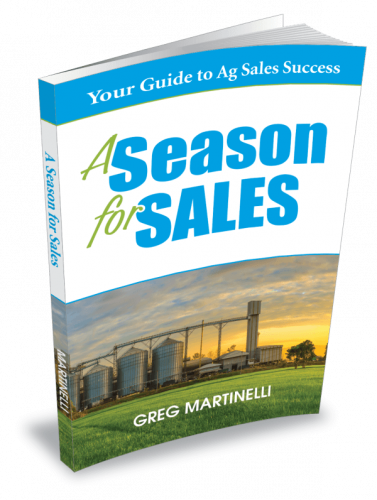How to use deadlines in your selling process
One of the biggest obstacles salespeople deal with is the “Let me think about it” or “I haven’t looked at your information yet”.
Is there a non-pushy or non-salesy way to reply to that obstacle? Where do I go from there? How do I dig out of that customer resistance
Answer: Sell on Deadlines
In order of importance, sell on natural deadlines, then customer deadlines, and finally, your deadlines.
Why are deadlines so important?
Short answer: some people just procrastinate until the last possible second to make a decision to spend their money. It’s almost as if they think something will change between now and the last possible time to decide. Maybe they feel that given time, they won’t even need to make a purchase. Or that a better deal will come along if they just wait.
Other customers may feel the decision requires time to think, analyze and interpret data. Those take time. More time than the customer has right now. So, they hit the pause button on your closing question. Or, they are in the DISC profile that just needs time to think about decisions. The S and the C simply require more time. Often, they need time by themselves to just think about their decision.
That’s where deadlines come into play when selling. I like to break down deadlines into three categories, from most to least important to a customer.
Deadline Categories
- Natural deadlines: These deadlines are created by a natural event or some absolute unavoidable time limit. Planting, harvest, weed/insect infestation, animal growth stages, etc. Another natural deadline is created in certain areas of agribusiness by peak demand. For example, whole turkeys for Thanksgiving or beef during summer barbecue season. Another is March 15th for crop insurance. I even consider taxes to be a natural deadline. Even though these are man-made deadlines, the dates don’t change without significant effort.
- Customer deadlines: Customers have their own sense of urgency and internal deadlines important to them. Their buying process is the most relevant deadline. For example, not spending money until they have the grain in the bin. Another is, “That’s the time of year we always buy equipment, sell grain, lock in crop inputs, etc.” Yearly planning is another deadline. In agribusinesses, this is the time when they plan budgets and allocate funds towards your products. With producers, this may be after harvest, but prior to the end of December for tax planning purposes.
- Your deadlines: Last in order of importance to your customer are those deadlines imposed on them by you or your company. Early order discount, special offers, promotions, 48-hour notice, delivery restrictions like route truck schedules, etc. Any aspect of buying from you that has a start date or end date. The reason I say they are the least important to a customer is because they tend to think we can change them if we really want to. And often, we do just that. Currently, in Ag equipment, precision Ag equipment, and certain crop inputs, there is an inventory deadline that is definitely something that can drive customer decisions. Tractors, combines, planters, Round Up, phos fertilizer are in short to no supply. Customers that want a new 2022 piece of equipment need to decide now (more like 6 months ago).
Again, the reason to sell to these deadlines is to establish the real level of urgency needed with your customer. It’s not to put them under pressure. It’s to understand how they put themselves under pressure. Establishing your customer’s view of their deadlines is a great way to understand the timing of their decisions and when you need to make sales calls on them.
More importantly, it can be a way for you to help your customer be a better buyer. For example, the producer that doesn’t market their grain until it’s in the bin will typically miss out on higher markets. This strategy also defeats one of the main reasons for crop insurance.
When should I start asking about deadlines? The earlier the better. Customers are more open and willing to share their plans earlier or in the middle of the selling process. It’s easier to get them to discuss this during the discovery phase as opposed to when you ask your closing question. At the point of closing, customers can feel like they will be trapped by a salesperson if they were to reveal their deadlines. So, start early. Uncover the buying process they go through and the deadlines you need to meet. Log them in your CRM program or in your customer file and sell on deadlines.

